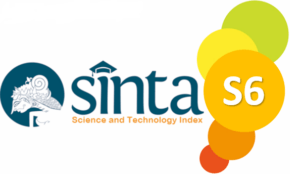| ..:: MAIN MENU ::.. |
| About The Journal |
| Focus & Scope |
| Peer Review Process |
| Author Guidelines |
| Publishing System |
| Privacy Statement |
| Copyright & License |
| Author Fees |
| Contact Us |
About the Journal
About the Journal
Focus and Scope
Focus
-
Legal Theory and Philosophy: Exploration of fundamental legal concepts, theories, and philosophical underpinnings of the law. This includes discussions on justice, legal reasoning, and the nature of legal systems.
-
Case Law and Jurisprudence: In-depth analysis of significant court decisions, their implications, and their influence on the development of legal principles and practices.
-
Legislation and Regulation: Examination of new and evolving statutes, regulations, and legislative processes. This also includes comparative analyses of legal systems and their legislative frameworks.
-
Legal Practice and Procedure: Focus on practical aspects of legal practice, including procedural rules, litigation strategies, and the practice of law in various jurisdictions.
-
Interdisciplinary Approaches: Integration of legal issues with other disciplines such as economics, sociology, political science, and technology. This includes discussions on how these fields intersect with and influence legal systems.
Scope
-
Original Research: Peer-reviewed articles presenting new research findings on various legal topics, including empirical studies, theoretical analysis, and doctrinal research.
-
Case Commentaries: Detailed examinations and critiques of recent or landmark court decisions, providing insight into their legal reasoning and broader impact.
-
Legislative Analysis: Articles analyzing recent legislation, proposed bills, and regulatory changes, including their potential impact on the legal landscape and practical implications.
-
Legal Reviews: Comprehensive reviews and surveys of specific areas of law, including updates on recent developments, emerging trends, and evolving legal standards.
-
Practice Notes: Practical insights and guidance for legal practitioners, including tips on litigation, drafting, client management, and navigating complex legal issues.
-
Legal History: Studies on the historical development of legal systems, major legal reforms, and the evolution of legal doctrines and practices.
-
International and Comparative Law: Analysis of international legal issues, comparative studies of different legal systems, and discussions on global legal trends and treaties.
-
Ethics and Professional Responsibility: Examination of ethical issues, professional conduct standards, and the role of legal ethics in practice and education.
-
Legal Education: Articles focused on the teaching and learning of law, including curriculum development, pedagogical approaches, and innovations in legal education.
-
Symposia and Special Issues: Themed issues or symposia focusing on specific legal topics or emerging issues, often featuring contributions from multiple authors and experts.
Peer Review Process
The authors of the article have to pay attention to the following editorial policy provisions:
- The manuscript that has been published or in the process of publication on another publisher may not be submitted. The author should confirm that the manuscript has not been published or in the process of being published by other publishers (in sealed).
- Manuscript submitted in digital form to the Editorial Board of Jurnal Hukum Progresif (JHP) using the online submission provided on this website.
- Upon acceptance of the Editorial Board, the manuscript will be explored in general. Scripts which are considered incompatible with the mission of Jurnal Hukum Progresif (JHP) will be rejected at this stage, and will be communicated immediately to the author and the reason of disapproval.
- Manuscripts that pass the general study will be sent to at least two reviewers (blind reviewer) to be formally studied.
- Based on reviewers' comments and recommendations, the Editorial Board will make and communicate decisions regarding assessed manuscripts (accepted without revision, accepted with minor revisions, major revisions accepted, rejected due to the quality of writing and rejected because of ethical reasons writing scientific papers).
- Revised manuscript must be returned to the Editorial Board within a predetermined time. If the revised manuscript is sent past the deadline specified, it will be treated as new submissions.
Publication Frequency
JHP published 12 times a year.
Open Access Policy
This journal provides immediate open access to its content on the principle that making research freely available to the public supports a greater global exchange of knowledge.
Publication Ethics Statement
JHP managed by jurnalhst.com. Editing in the publishing process of JHP involves the role of Peer Reviewers.
JHP has a high commitment in maintaining the highest standard in publication, including by upholding compliance to publication ethics. For this purpose, the Publication Ethics of this journal refers to the Regulation of the Head of Indonesian Institute of Sciences No. 5 of 2014 on the Code of Ethics of Scientific Publications. The Publication Ethics, which is intended to respond to cases of ethical misconduct in publications, is developed in four ethical standards, based on the parties participating in the production of a journal, which are Ethical Standard for Journal Manager, Ethical Standard for Editorial Board, Ethical Standard Peer Reviewers and Ethical Standard for Authors.
When it comes to implementation, articles that show lacks of compliance to the Publication Ethics will be denied publication in JHP. To prevent violations of the Publication Ethics, the Editorial Board applies software to detect plagiarism practices. In any case where violations of the Publication Ethics of a published article is detected subsequently, the Editorial Board will file a report to the appropriate authorities.




